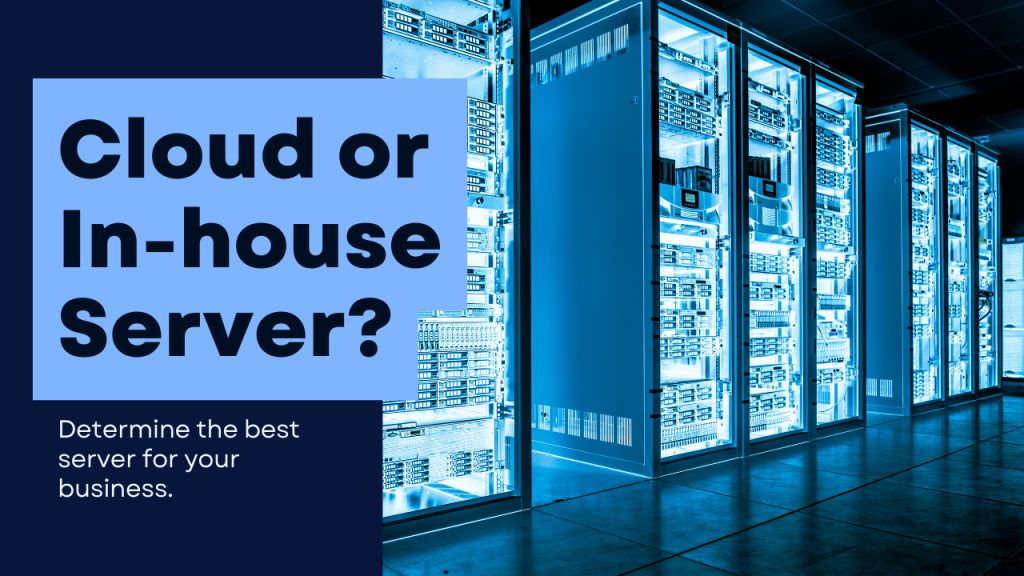Cloud or In-House Server: Which is best for your business?

The topic of hosting infrastructure holds significant importance in the digital era due to the essential role of data and online services in enterprises.
Businesses often face challenges when making the decision between using in-house servers or opting for cloud hosting. They aim to provide flawless client experiences while also ensuring data security and scalability.
The traditional approach to hosting has involved companies investing in hardware, software, and dedicated IT teams for their in-house servers. However, a more flexible and scalable solution is now available through cloud hosting. This method delivers computing resources as a service over the internet, eliminating the need for physical infrastructure on-site.
Cloud or In-House Server options have their respective strengths and weaknesses, making the decision a multi-faceted one.
What do In-House Servers and Cloud Computing refer to
An in-house server, also known as an on-premise server, is a physical infrastructure owned and operated by a business within its own premises or data center. This dedicated computing system is utilized for the storage, processing, and management of data and applications for internal use. In-house servers are typically equipped with specialized hardware, operating systems, and software applications tailored to meet the specific computing requirements of the organization.
Cloud hosting, on the other hand, is a technology framework that utilizes external servers, typically managed by third-party suppliers, to store, handle, and process data and applications. It operates on a cloud computing infrastructure that employs virtualization strategies to generate numerous virtual servers on shared physical hardware, rendering versatile and expandable resources easily accessible via the internet.
What is the primary distinction between Cloud and Physical Servers?
When considering whether to use a cloud server or an in-house physical server model, it is essential to understand the key distinctions between these options. This understanding is crucial as it allows for a thorough evaluation of the value each choice can bring.
Data Recoverability:
Cloud providers employ data redundancy measures to safeguard customer data from potential losses caused by hardware malfunctions, natural calamities, or unforeseen circumstances.
Flexibility:
If your business is anticipating rapid growth or planning to relocate data in the near future, it may be beneficial to consider a cloud-based environment. With all of your important files securely stored in the cloud, they can easily be migrated or transferred as needed.
Scalability:
Cloud environments provide a more flexible and scalable option for growth compared to physical servers that rely on routers and switches for customization. With just a few clicks, users can easily add resources in a cloud environment, whereas physical servers require manual hardware modifications when upgrading server capabilities.
What is the ideal server solution for your small to medium-sized business?
When considering options for server solutions in your business, it is crucial to select the most suitable option that meets both present and future needs.
Weighing between hybrid servers, Cloud or In-House Server requires careful consideration to ensure an optimal fit for your business.
Utho, India's leading public cloud provider, began as a web hosting company in 2010 and launched India's first cloud platform in 2018. Through simple, secure, and reliable cloud solutions, businesses can break free of vendor lock-in, slow speeds, high costs, and complexity with Utho. With more than a decade of experience, we prioritize simplicity, security, and customer service.
Since we understand the pain of businesses and customers who use in-house servers, we have assisted over 3,000+ SMBs in migrating to the cloud.
Moving your data to the cloud from in-house servers?
Get a free consultation with our cloud expert today.
Read Also: 7 Reasons Why Cloud Infrastructure is Important for Startups